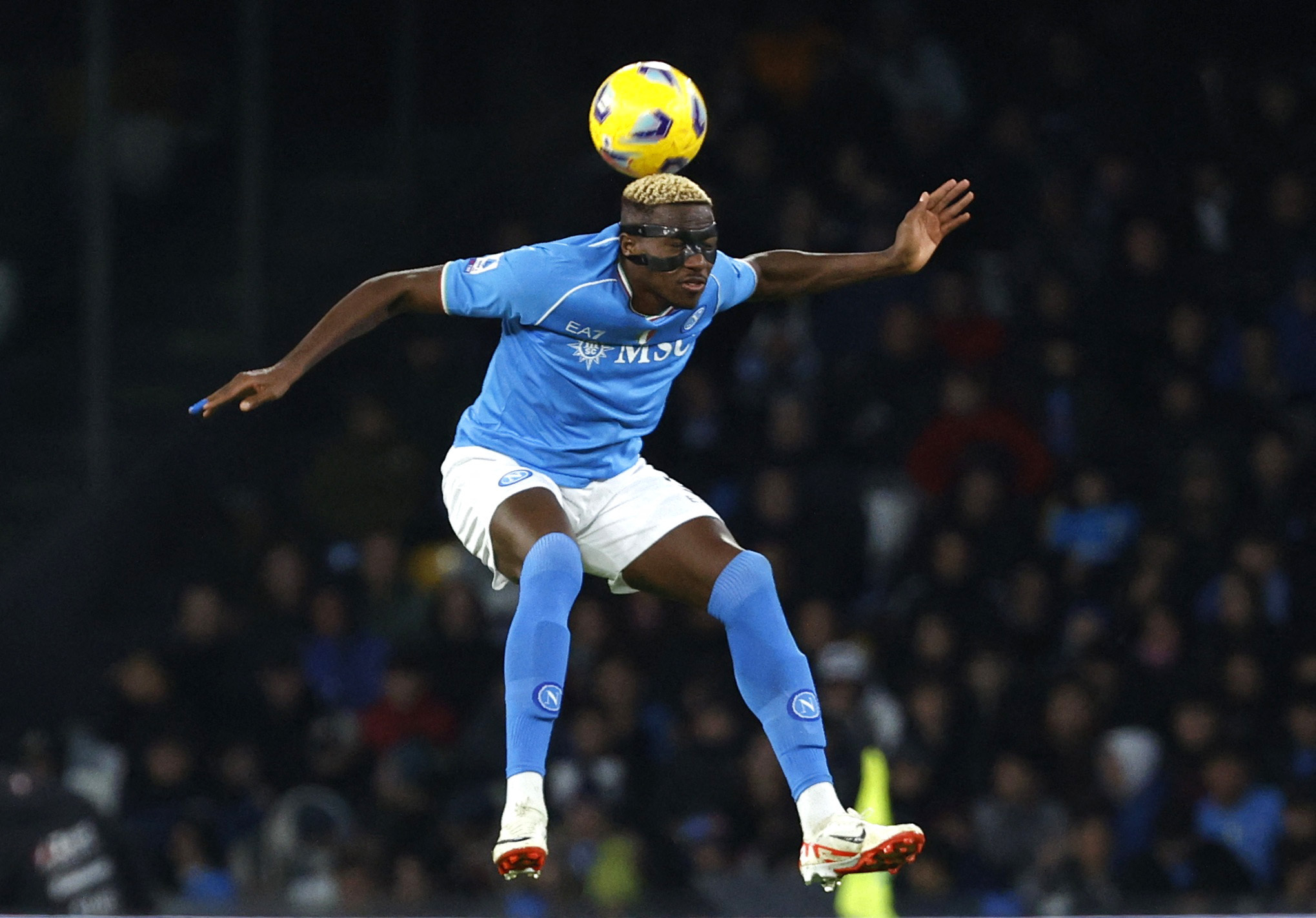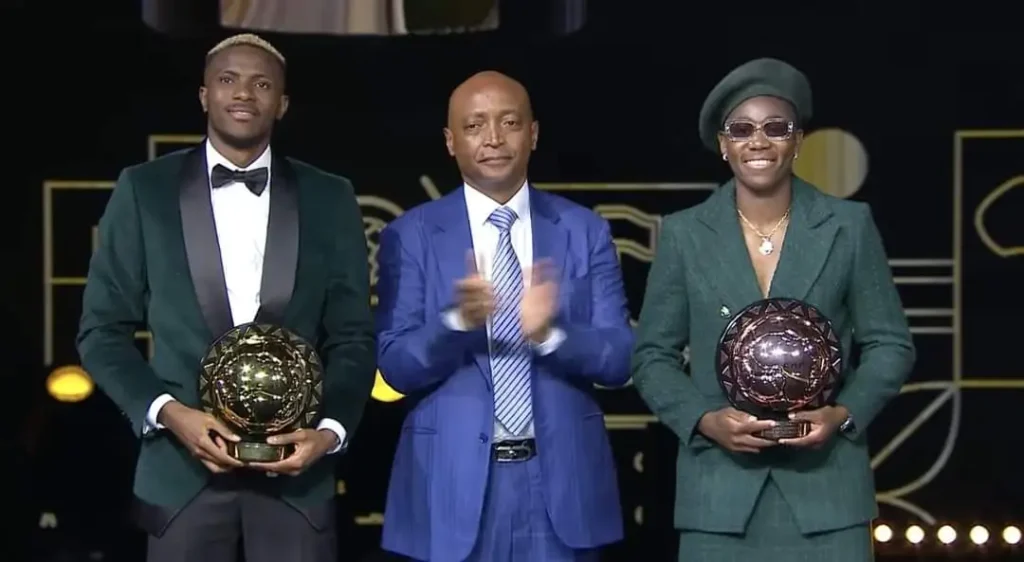Nigerian striker Victor Osimhen was named African Footballer of the Year with his compatriot Asisat Oshoala winning the top prize in the 2023 women’s category to the award at a ceremony in Marrakech on Monday,
Nigeria’s Barcelona forward Oshoala was the women’s African Footballer of the Year for a record sixth time, having battled injury to help her side to the round of 16 at the World Cup in Australia & New Zealand where they took England to penalties.
Monday’s award capped off a sterling year for the Super Eagles forward whose historic feat in the imperial Moroccan city of Marakesh ended Nigeria’s 24-year-old wait for Africa’s top individual prize. Legendary Kanu Nwankwo was the last Nigerian to win the award and that was in 1999.

Osimhen, 24, scored 26 goals as he helped Napoli to a surprise triumph in Serie A last season and was the leading marksmen in Italy’s top division.
Egypt’s Liverpool forward Salah and Morocco’s Paris St Germain right-back Achraf Hakimi were the other two final nominees but Osimhen claimed the prize to become the first Nigerian winner since Nwankwo Kanu in 1999.
At the event, a smiling Osimhen hailed the impact of Nigerian legend Emmanuel Amuneke, who coached him at the U-17 level, as well as fans from the country among others.
“First of all, I want to say thank you to God for everything. Special thanks go to Mr. Emmanuel Amunike; without him, I don’t think I would be standing in front of you guys holding one of the most prestigious awards in world football,” he told the gathering of the creme-de-la-creme of African football and beyond.
Related news
- CAF Awards: Osimhen, Salah and 28 others Make Nominees list
- Osimhen Nets Hat-trick As Nigeria Grabs U23 AFCON Spot
- 2022 CAF Awards: Mane, Oshoala win big
“It’s a dream come true for me. I want to thank everyone who has seen me through life’s journey. In achieving my dreams, in achieving my goals.
“I appreciate Nigerians for their support; I appreciate Africa for putting me on the map, for encouraging me, and for defending me regardless of my shortcomings.
“I also thank Emmanuel Adebayo for his encouragement. Solomon Kalu, I appreciate you. And every African legend that I have looked up to while growing up has inspired me. Didier Drogba, my role model, thank you so much. God bless you all,” Osimhen said.
The prize is a recognition of Osimhen’s exploits for his Napoli club side and the national team where he is a key member. He spearheaded the Italian team’s unprecedented Serie A title run, scoring 26 goals in the league to become the first African to win the top scorer award. His contribution broke George Weah’s record as the highest-scoring player from the continent in the Italian top flight.
Napoli last won the Scudetto 33 years ago during the legendary Diego Maradona’s era. For the 2022/23 campaign, the former Lille striker’s impeccable form saw him included in the Serie A Team of the Year as he also clinched the Best Striker prize.
Osimhen’s ranking in the 2023 Ballon d’Or was a testament to his contributions to the Serie A team’s epochal showing. He was ninth, becoming the highest-ranked African for the year and the most-ranked Nigerian in the history of the award.

Earlier in the month, the Nigerian was crowned as Italian footballers’ association player of the Year, the first African to win the AIC award.
Though Nigeria agonizingly missed out on the 2022 World Cup, losing the ticket to perennial rivals Ghana, Osimhen’s contributions to the Super Eagles were staggering in the year under review. He was the top scorer in the qualification race for the 2023 Africa Cup of Nations (AFCON) with 10 goals.
Although injuries have hampered his outing for Napoli this season – with just six goals in 10 games for Walter Mazzari’s men – Monday’s award is the crowning point of a hugely successful year for the Nigerian marksman.
Morocco won National Team of the Year in the men’s category after their thrilling run to the World Cup semi-finals in Qatar, while their manager Walid Regragui won Coach of the Year.
Nigeria took home the trophy for National Team of the Year, but South Africa’s Desiree Ellis won women’s Coach of the Year for the fourth time in succession.

